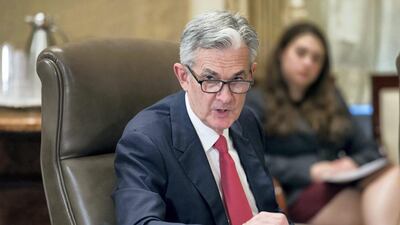Markets seem to have shaken off initial Omicron worries for the time being. The S&P 500 is up 2.4 per cent in December and approaching all-time highs, while the Nasdaq, albeit down 0.09 per cent on the month, has bounced back handsomely from those 15,500 lows at the beginning of the month.
However, one of the key risks of this new Covid-19 variant will be if governments take harsher actions to reduce the risk of transmission.
The UK implemented “Plan B” restrictions last week, which resulted in GBP/USD futures contracts on the Dubai Gold & Commodities Exchange slipping below 1.33 levels.
While we note that the Omicron variant’s transmissibility is higher, that does not necessarily translate to higher death rates at this juncture. This theme could change, of course.
Equity markets have bounced back amid the Omicron threat and have also navigated elevated inflationary threats.
The US Consumer Price Index, a key measure of inflation, came in at 6.8 per cent last month – its highest level in 39 years. Despite the higher-than-expected print, markets continued their upward momentum and now all attention this week turns to when the US Federal Reserve, the Bank of England and the European Central Bank deliver their final policy announcements of 2021.
As I have discussed in earlier columns, central bank action – or the lack thereof – has been a key theme for markets.
Global central banks now find themselves at a precipice. Despite months of quantitative easing measures, which saw unprecedented levels of liquidity poured into the system to battle Covid-19, inflationary threats have emerged and it has now become a question of when, not if, to rein in their stimulus programmes.
head of futures, EGM Futures
The Federal Reserve, which will deliver its announcement in the late hours of Wednesday (11pm UAE time), is not expected to raise rates but could dial up its hawkish tone and speed up tightening efforts. Some in the market expect the Fed to double the current pace of its bond purchase taper.
Pay attention to Fed chairman Jerome Powell’s language during the press conference – if he delivers a stronger/faster taper programme, then equities will come under pressure. However, if his comments do not come out as strong and the Fed maintains the current pace of taper, this expect equities to be lifted through to the end of the year.
The ECB and the BoE follow with their announcements on Thursday. The BoE was set to be the first central bank to begin the rate increase cycle.
But despite inflation running higher than expected, a run of weaker-than-expected economic figures – the UK economy grew by a paltry 0.1 per cent month-on-month in October – the rise of Omicron and initiation of Plan B restrictions have put the BoE in a conflicted position and it may wait until 2022 for further price action.
The ECB finds itself in a similar position. High-ranking ECB officials have reinforced the idea that while inflation threats are temporary, a surge in Covid-19 cases in the winter months keeps things uncertain.
So while the current $2.9 trillion Pandemic Emergency Purchase Programme is set to expire in March, do not be surprised if ECB president Christine Lagarde leaves the door open to restart asset purchases if need be.
We have entered a critical week dominated by central bank policy, which will undoubtedly develop trends for the first half of 2022. I expect volatility to be rife in the interim.
Gaurav Kashyap is head of futures at EGM Futures. The views and opinions expressed in this article are those of the author and do not reflect the views of EGM Futures

